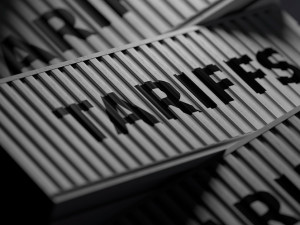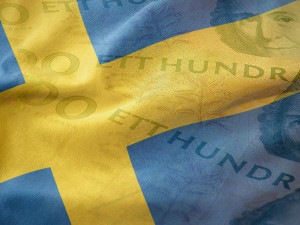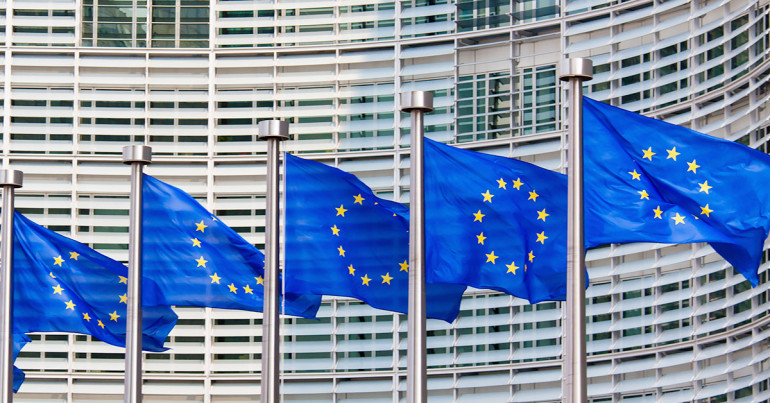
The eurozone, also referred to as the euro area, is a currency union of 20 member states. All 20 countries are within the European Union (EU) and also use the euro as their sole legal tender. These countries are also by default part of the Economic and Monetary Union (EMU) which is the EU’s economic union aiming to converge these economies and ensure closer economic integration and cooperation.
In this article, we will be explaining what the eurozone is, why it was created and where it is headed in the future.
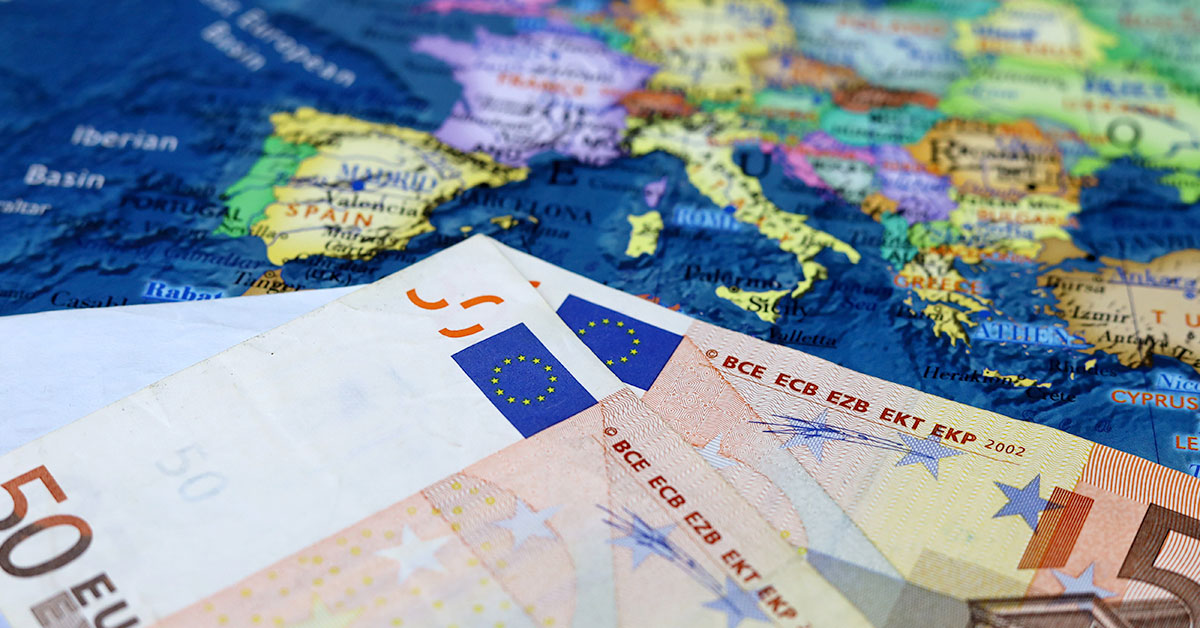
Which countries are in the eurozone?
At the time of writing, there are currently 20 countries in the eurozone, with Croatia being the newest member joining on January 1st 2023.
These countries are:
- Austria
- Belgium
- Croatia
- Cyprus
- Estonia
- Finland
- France
- Germany
- Greece
- Ireland
- Italy
- Latvia
- Lithuania
- Luxembourg
- Malta
- Netherlands
- Portugal
- Slovakia
- Slovenia
- Spain
These countries all use the euro and are part of the Economic Monetary Union (EMU) which means they adopt economic policies set by the EU.
Which countries are not in the eurozone?
An important distinction must be made between the eurozone and the EU. The eurozone is the economic region that consists of countries within the EU (27 countries) that are also using the euro (20 countries).
Seven EU members do not use the euro, and are therefore not in the eurozone:
- Bulgaria
- Czech Republic
- Denmark
- Hungary
- Poland
- Romania
- Sweden
This is why when looking at data from the European Commission, there is a distinction between the EU and eurozone data, as there are minor differences.
Four countries use the euro which are not in the EU and are therefore not part of the eurozone:
- Andorra
- Monaco
- San Marino
- Vatican City
These countries are considered non-eurozone members as they have not joined the EU nor the EMU, so while they are using the euro and contributing to the strength of the currency, they are not part of the economic integration.
Creation of the eurozone
On the 1st of January 1999, the eurozone was created, meaning that the euro currency was introduced, but initially only to banks and institutions as an ‘invisible currency’.
The 11 original countries in the eurozone were:
- Austria
- Belgium,
- Finland
- France
- Germany
- Ireland
- Italy
- Luxembourg
- Netherlands
- Portugal
- Spain
There are currently 10 countries that could potentially be joining the eurozone in the next few years, however, each country must meet certain criteria in order to be accepted.
These criteria are broken down into four modules:
- Price stability
- Sound and sustainable public finances
- Exchange-rate stability
- Long-term interest rates
Only when a country ticks these boxes can they be officially considered.
Why was the eurozone created?
The eurozone was created for a multitude of reasons, the main one being economic integration. Europe as a continent is complex and varies in economies and wealth, but shares common economic ties and trading routes. Plus, the population of Europe at the time of writing is 746 million, which if unified, puts it in competition with other economic powerhouses such as the US and China.
Entering into a single market means that goods, services, capital and labour can be freely moved between countries. Cross-border trade and investment is much easier. Having a common currency means that conversion costs are eliminated, as well as currency trading risks.
The creation of the European Central Bank (ECB) and a common monetary policy also allows for greater oversight of the markets. It means that price stability can be maintained – although critics would argue that the eurozone is not necessarily more stable.
Politically, the adoption of the eurozone also makes sense. Countries can be more aligned and transparent in their economic policies, therefore reducing the risk of conflict and potential currency wars. In turn, more stable conditions promote greater investment in the region as one bloc. A common currency in Africa known as the eco has been proposed by ECOWAS for similar benefits.
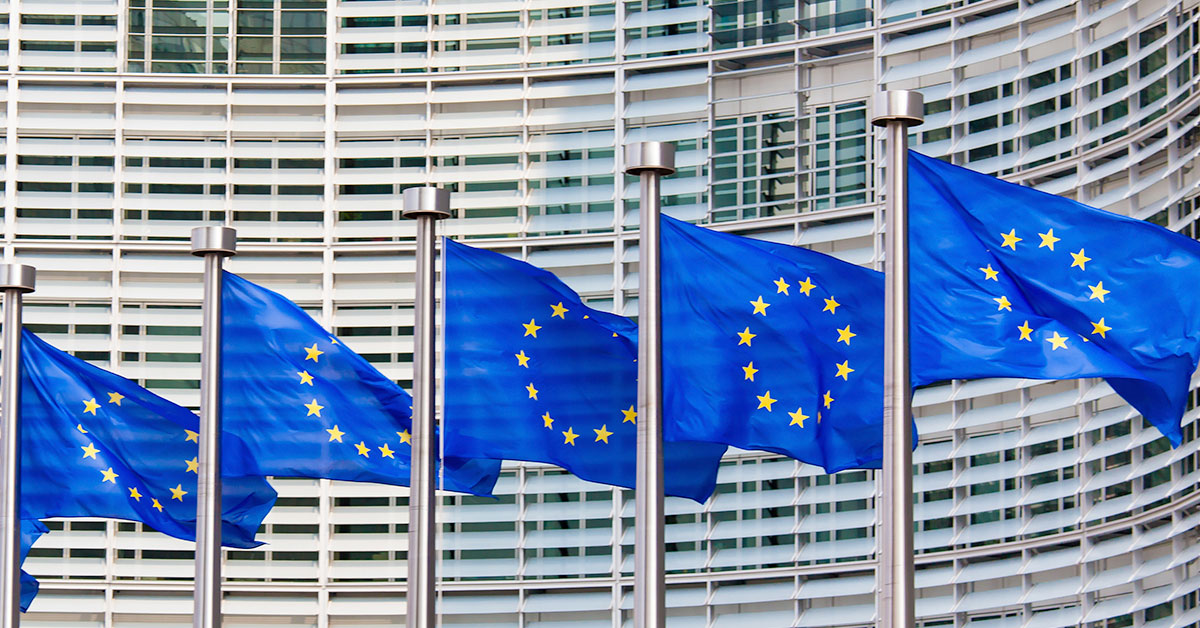
Criticism of the eurozone
Some sceptics argue that the eurozone was created purely to combat dollar dominance. By creating a single market and a common currency, Europe can now compete with the dollar and rising renminbi. The actual efficiency and need for a common currency is seen by some as second to this.
The outbreak and handling of the Greek financial crisis showed many of the weaknesses of the eurozone. Many economists agree that the eurozone may have actually contributed to the crisis. Greece was also accepted into the eurozone despite not having met the criteria, yet at the same time, other countries were also not accepted due to failing to meet the criteria, despite having stronger economies than Greece at the time. This led many to believe that the EU was showing favouritism to certain countries, despite advocating democracy in a single market.
Future of the eurozone
Despite fears that the eurozone crisis may be dormant, the eurozone is still strong and has recovered well since a period of high inflation, thanks to the ECB’s actions.
As more countries join the eurozone, which as previously stated, has members on the waiting list, the strength of the currency will grow. Enlargement of the eurozone is therefore likely to happen and create even more influence for the economic bloc. At the time of writing, the euro is celebrating its 25th-year anniversary, and public support is sitting comfortably at 79% as of October 2023.
Furthermore, the digital euro is currently being tested as many central banks flirt with the idea of rolling out CBDCs. A digital euro will likely provide even more economic insight and unity as the ECB will be able to monitor economic patterns a lot more closely. However, existing scepticism of the euro may be exacerbated as privacy concerns are ramped up.
For more articles on currency and economics, make sure to stay posted on our weekly articles at CurrencyTransfer in our Expert Analysis section. We also post daily updates on the market with our Market Commentary.
Sign up for an account with CurrencyTransfer today for free, and you’ll be assigned an account manager who will help you every step of the way.
Caleb Hinton
Caleb is a writer specialising in financial copy. He has a background in copywriting, banking, digital wallets, and SEO – and enjoys writing in his spare time too, as well as language learning, chess and investing.
